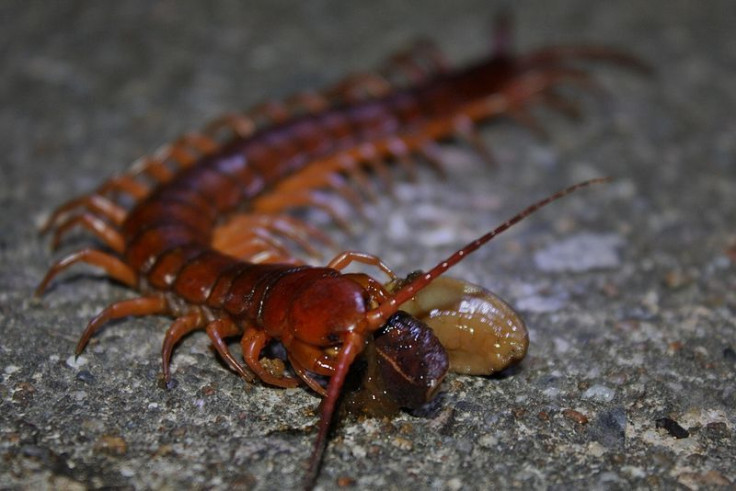Centipede Venom Could Treat Pain More Effectively Than Morphine

The number of opioid painkiller prescriptions has risen in recent decades, but even with increased use, doctors haven’t gotten any better at treating pain. Seeking to curb side effects from opoioid use and improve pain treatment, researchers have discovered that certain components of a centipede’s venom may be able to stop pain just as much as morphine, and without the side-effects.
The Chinese redheaded centipede, which is normally farmed for consumption, paralyzes its prey by injecting venom that blocks a voltage-gated sodium channel protein. One of nine voltage-gated sodium channel proteins (known as Nav for short), Nav1.7 is distinguished from other channels for its role in pain transmission, ABC Science reported.
“The difficulty is finding molecules that are selective for this one channel,” Professor Glenn King, of the University of Queensland, Australia, and lead author of the study, told ABC.
The scientists knew that centipedes and other arthropods, such as scorpions, only had one type of voltage-gated sodium channel. “We’re just lucky that of the other nine Nav channels in humans, it hit the one we were after,” told ABC.
The centipede venom proved to be over 150 times more selective for Nav1.7 than other Nav channels. Because of this, the researchers were able to bypass an issue that plagued other drugs that tried to focus on Nav1.7: These drugs also affected other sodium-ion channels, including those associated with heart and muscle function.
For their study, the researchers injected mice with a high dose of the peptide extracted from the centipede’s venom, Ssm6a. They then subjected the mice to thermal, chemical, and acid pain tests. They found that it was comparable to morphine in the thermal and acid tests, but that it did better during the chemical tests. What’s more, none of the mice showed any side effects or behaviors indicated addiction because unlike morphine, King said.
Chronic pain affects at least 116 million Americans each year. Persistent pain can last as from months to years, and can be caused from everything from a sprained back to arthritis or cancer.
King’s study is one of many recent studies to explore the possibility of treating people with venom. In August, one study found that venom immunotherapy, in which venom is injected in gradually increasing doses, was better at treating a person allergic to stings than EpiPens. Other research has suggested that venom from sea anemones can help block the proteins responsible for inflammation, therefore reducing pain for sufferers of arthritis.
Source: Yang S, Xiao Y, Kang D, et al. Discovery of a selective NaV1.7 inhibitor from centipede venom with analgesic efficacy exceeding morphine in rodent pain models. PNAS. 2013.
Published by Medicaldaily.com



























